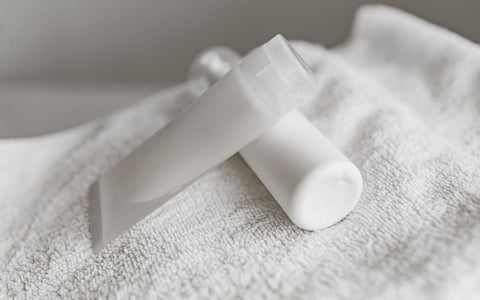
If you’ve ever been shopping in the sunscreen aisle at your local drugstore, like many people, you may have been completely lost in all the different SPF ratings. It’s always a challenge (especially for people just starting out in suncare) to understand what SPF actually means, the rating differences, and which ones qualify to be top rated sunscreens!
Before you commit to a sunscreen brand, let’s review some information and suggestions that will help you take the leap into a long-lasting relationship with your skin. After all, sunscreen not only protects your skin from the sun but is one of the best anti-aging products you can have in your skin care beauty products arsenal!
Mystery Solved!
SPF stands for Sun Protection Factor and it’s a measure of how long a sunscreen will protect your skin from UVB rays. UVB rays are one of two types of ultraviolet rays, the other being UVA. UVB rays are what causes your skin to sunburn; it also damages the skin and contributes to skin cancer.
As an example, if my skin usually starts to sunburn after 5 minutes in the sun and I apply a sunscreen with an SPF 20 rating, it will protect my skin for approximately 100 minutes or 1 hour and 40 minutes, before I start to sunburn. Before this time, it’s important to reapply to stay protected!
The SPF Scale
Before you look at the following SPF scale, I want you to take note that SPF is more about time, not strength and that no sunscreen can completely block all UVB rays.
According to Florida dermatologist James M. Spencer M.D., “It is logical for someone to think that an SPF of 30 is twice as good as an SPF of 15 and so on. But that is not how it works.”
- SPF 15 will block out approximately 93% of UVB rays
- SPF 30 will block out approximately 97% of UVB rays
- SPF 50 will block out approximately 98% of UVB rays
By looking at the scale it’s easy to see that SPF 30 only gives 4% more protection than SPF 15. Dermatologists recommend using a Broad Spectrum sunscreen between SPF 15 and SPF 30, since higher SPFs don’t offer much more protection. It is much more important to make sure you are properly applying and reapplying your sunscreen!
High SPF and Chemicals
If you’re an organic skincare junkie like I am, another factor to consider when choosing a sunscreen based on its SPF number is the chemicals! Because higher SPF sunscreens actually soak into the skin, they come with greater health risks than lower SPF sunscreens. Some harmful chemicals you will often find in off-the-shelf sunscreens include Oxybenzone, Octinoxate, and Homosalate. Chemicals such as these in popular sunscreens have been linked to tissue damage, potential hormone disruption, and allergic skin reactions.
ZINC IT OVER, Will You Marry Me?
Don’t get cold feet — organic sunscreens are on the rise! Organic sunscreens are trending and like other sunscreen options, there are many to choose from! When it comes to choosing top rated organic sun protection, my advice is to pick one that fits your lifestyle! If you consider yourself to be an active or working woman, then our for use over makeup sunscreen facial mist, ZINC IT OVER™ may be the perfect option for you. As an SPF 20 Micronized Zinc Oxide formula, not only is it a proven-effective, chemical-free and hydrating facial mist; it can also be used as a makeup setting spray, making it truly the best Zinc sunscreen on the market!
The I Do’s
So, the 3 main things to remember before saying “I do,” are: the SPF rating is more about time than strength, higher SPFs often contain harmful chemicals, and choose a sunscreen that fits your lifestyle! Now that you know more about your future partner in skin protection, there’s only one thing left to ask when you get to the altar (checkout): Do you take this sunscreen as your skin care and anti-aging solution?
To learn more about High SPF ratings go to:
http://www.ewg.org/sunscreen/report/whats-wrong-with-high-spf/
http://www.ewg.org/sunscreen/report/the-trouble-with-sunscreen-chemicals/

